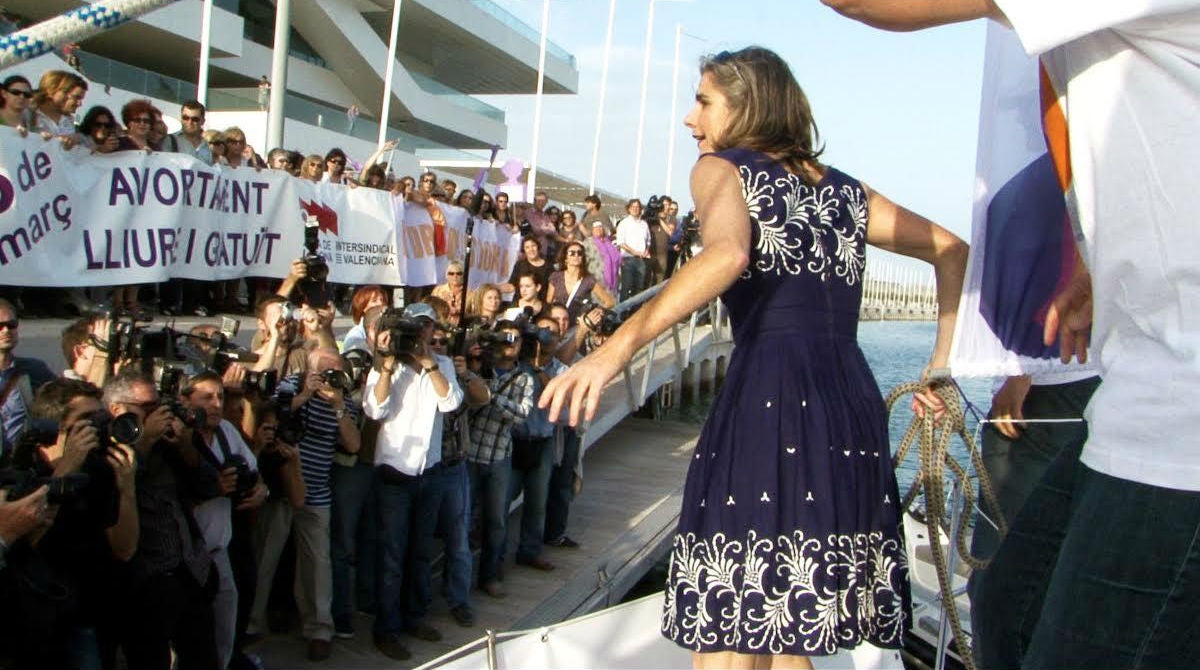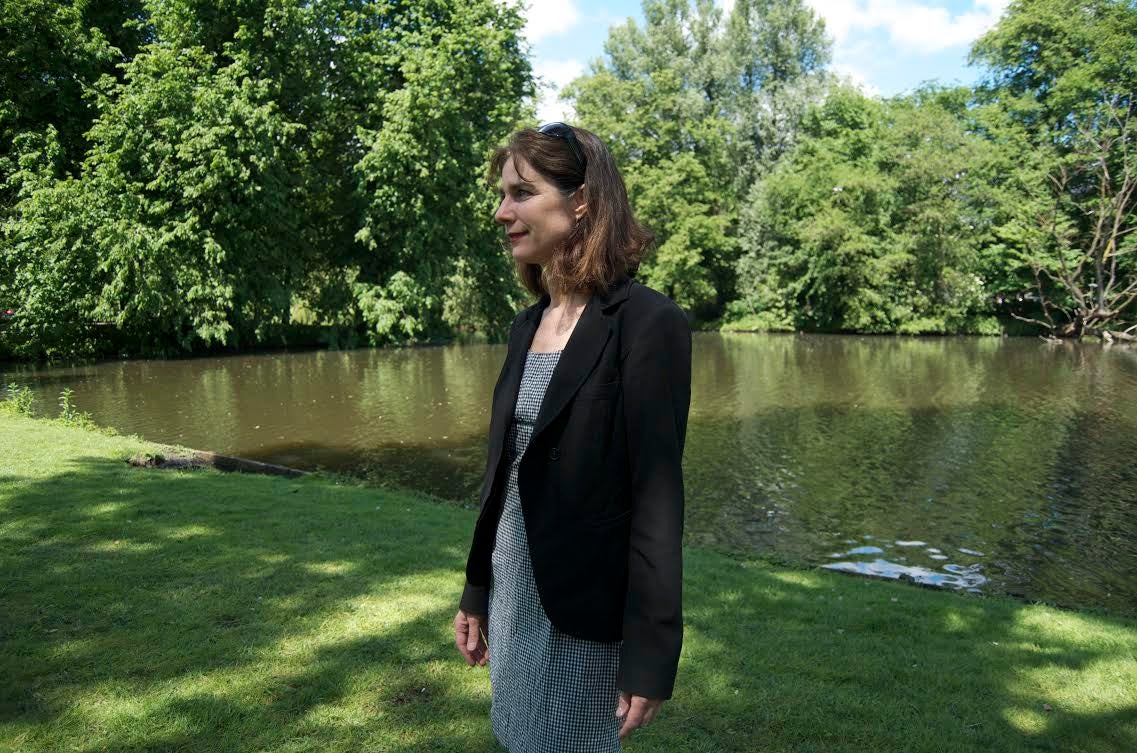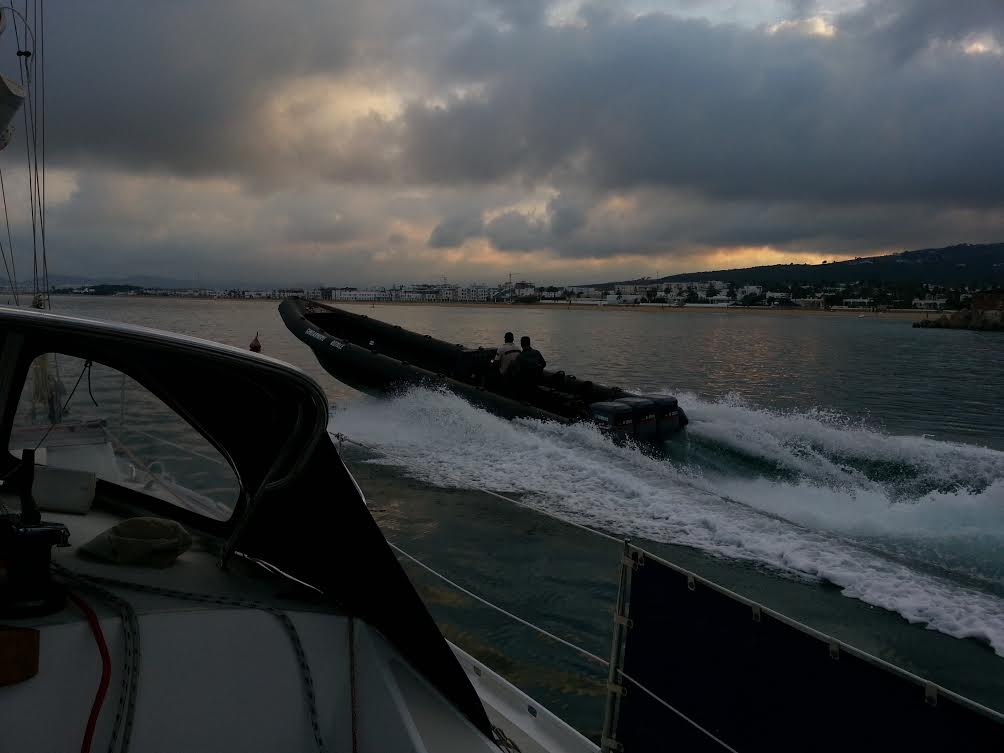Rebecca Gomperts: Meet the woman travelling the world delivering abortion drugs by drone
Dr Gomperts has devoted the entirety of her work and life to helping women safely terminate pregnancies

Your support helps us to tell the story
From reproductive rights to climate change to Big Tech, The Independent is on the ground when the story is developing. Whether it's investigating the financials of Elon Musk's pro-Trump PAC or producing our latest documentary, 'The A Word', which shines a light on the American women fighting for reproductive rights, we know how important it is to parse out the facts from the messaging.
At such a critical moment in US history, we need reporters on the ground. Your donation allows us to keep sending journalists to speak to both sides of the story.
The Independent is trusted by Americans across the entire political spectrum. And unlike many other quality news outlets, we choose not to lock Americans out of our reporting and analysis with paywalls. We believe quality journalism should be available to everyone, paid for by those who can afford it.
Your support makes all the difference.Every year, 47,000 women worldwide die from an unsafe abortion. To put this into context, every nine minutes a woman dies from a termination which is not safe.
While abortion might be one of the safest medical procedures in the world in countries where it is legal, it is harrowingly risky in nations where it is illegal. Of the estimated 20 million women who undergo illegal abortions each year, millions go on to suffer long-lasting and sometimes permanent health consequences from their termination. Infertility and chronic pain are just two of the possible symptoms.
For this very reason, Dr Rebecca Gomperts has devoted the entirety of her work and life to helping women safely terminate pregnancies in countries where it is illegal. From flying drones filled with abortions pills to sailing the seven seas to distribute safe medical abortions in international waters, the 49-year-old Dutch physician will stop at nothing to help women in need.
Since founding Women on Waves, a non-profit organisation of doctors and activists, back in 1999, Gomperts' tactics have perpetually evolved. As well as defying the law of the land by ship, she also runs Women on Web, a website and mail service which delivers abortion pills to women worldwide. Having encountered everything from constantly changing legal frameworks to poker-faced border authorities and stormy seas, Gomperts always has her wits about her.

But what was it that prompted that first eponymous lightbulb moment? When did Gomperts first decide she wanted to sail to the far east with a boat stocked with packets of mifepristone and misoprostol (the two key drugs you need to carry out an abortion). The Independent spoke with Gomperts to find out.
Who is Rebecca Gomperts?
Born in Suriname, a country on the northeastern Atlantic coast of South America and a former Dutch colony, Gomperts moved to the Netherlands at the age of three. Growing up in a small village in the south of the Netherlands, her international consciousness was inbred into her from an early age. At this time, she was not yet aware of the struggle many women faced to access medical abortions, but after studying medicine and going to art school, this rapidly changed.
“Abortion was legalised in Holland in 1984 but I was too young to be involved in the struggle to get it legalised,” she recalls. “But working in a small hospital as a trainee doctor in Guiana changed this. There were women coming in severely bleeding. Somehow at the time I didn’t make the connection with the illegality of abortion.”
Later Gomperts helped on the Greenpeace vessel Rainbow Warrior II in South Africa where she was exposed to countless stories of women’s suffering and their obstacles to accessing reproductive services. This, in turn, sowed the seeds for Women on Waves.
What is Women on Waves?
To put it simply, Women on Waves is centered around the idea of a floating abortion clinic: the ship travels to collect women in need and transports them to international waters. There, they provide them with the pill which they can safely take after reaching dry land at home. She explains that it has to remain separate from Women on Web because of the legal risks it takes.
It wasn’t until that 2001 that Women on Waves made their maiden voyage to Ireland. Carrying two Dutch doctors and one Dutch nurse on board, this particular mission was thwarted because of a certification error.
Since then Women on Waves has travelled as far afield as Morocco, Spain, Poland, and Portugal when abortion was still illegal. The group did plan to go to Equador but Gomperts says the ship was stranded in the storm and it was never able to make it.

What impact has Women on Waves actually had?
While it is hard to quantify such things, Gomperts has seen concrete legislative change from her direct action. She says this is most notable in relation to their campaign in Portugal. Back in 2004, the government refused to allow the organisation entry and physically obstructed their ship with two Portuguese Navy warships. In turn, it was stranded twelve miles from Figueria de Foz, a small holiday town, in the midst of Portuguese waters.
“But the campaign caused outrage in Portugal,” Gomperts explains. “After the election, the abortion law was changed and it was legalised. While I think it would have happened eventually, I definitely think Women on the Waves had a catalysing effect.”
How does she harness the power of the World Wide Web?
Founded in 2005, Women on Web is an online service which allows women to request medical abortions by post after they have undergone a consultation with a doctor online. “We get around ten thousand emails a month,” Gomperts says. “We have women on the helpline answering emails in different languages.“ Their emails have ranged from 123 countries, to be exact.
Brazil is a key country which utilises this service. Since the advent of the Zika virus, Gomperts says the demand for abortion pills has dramatically increased. Nevertheless, sadly this good work has now been pushed to an abrupt halt. “Unfortunately since the new year, they’ve started stopping the customs service and stopping all the packages,” Gomperts unhappily explains. “We have had to stop providing help to Brazil . Now we tell them where they can travel where abortion is legal. I.e. Cuba, Belize, Uruguay, and more.”
Interestingly, she says Women on Web also gets a fair few requests from women in Britain. These women cite a range of reasons for their requests. As well as complaining about long NHS waiting list, many are or in abusive, coercive relationships and have no means of accessing abortion clinics. “Or we’ll have a girl of 16 contact us who is from a religious family who cannot leave the house without being chaperoned and then are illegal undocumented women too,” she adds.
Who are the people behind the statistics?
For Gomperts, it is the individual stories which ultimately drives her. “Everyday we get so many emails from women who are desperate for help and are desperate to have found somebody that can help them whether they have money or not,” she says. “Those with money can always travel to another country or find a good doctor but for many women, that is not possible”.
A number of particularly heart-rendering emails are featured in Vessel, a recent documentary which charts both her and the charity’s trajectory. From a US soldier serving in Afghanistan who was raped and unable to access abortions, to a woman in Ireland whose husband controls her income and cannot afford black-market prices, to a woman in Qatar who will be lashed to death if the authorities find out she is pregnant, Gomperts has had women from all over the world reach out to her.
What are drones used for?
In recent years, Gomperts has also become famed for her drone work. Most notable is the campaign in Poland - where abortion is severely restricted - in the summer of last year. “The drones are flying abortion pills from one country to the other,” she explains. “Like the ship, it’s using the different laws and jurisdictions to do that legally and by doing that it’s trying to invent a new mode of delivery. This is not yet sustainable in the long run but these are test campaigns to see how it works out.” So far so good - the campaign in Poland was a success. The drone-delivered drugs were flown from the border of Germany safely into Poland where they were collected.
Nevertheless, it has left some of the Polish activists in hot water. "The Polish authorities contacted all the Polish participants in the campaign and made them go to the police station for questioning. We don’t know if they’ll start a court case or they’ll drop it. It’s an example of intimidation of activists“.
What about the legal logistics?
One thing Gomperts is forever careful about is ensuring she meanders her way through the loopholes of the legal system.
“We never break the law,” she says matter-of-factly. “People are allowed to import medicine for their use - that is how it works. It is sent with a prescription from one of our doctors. But of course, the law is not static. We push the interpretation of laws and put them in a human rights framework.”
To put this into context, the World Health Organisation lists abortion pills on its list of essential medicines all individuals have the right to access. Saying that, the Dutch physician has spent over a decade fighting in international legal battles to defend her work and continues to do so, remaining unwavering in her commitment to women’s reproductive rights worldwide.
Join our commenting forum
Join thought-provoking conversations, follow other Independent readers and see their replies
Comments